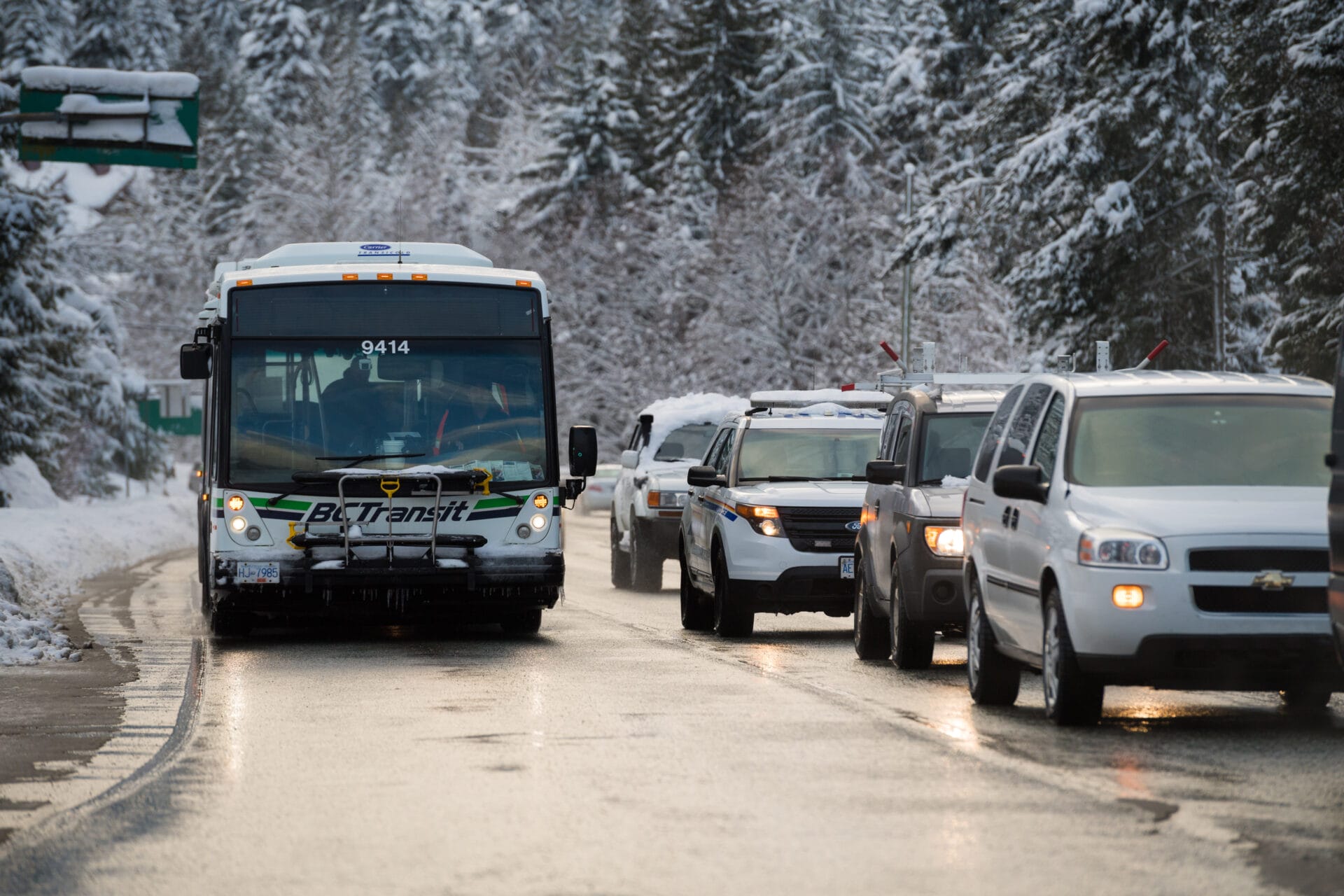Transit expansion to add 7,650 hours of service, boosting resort’s climate action strategy
March 19, 2024: Whistler, B.C. – Whistler transit users will now have 10 per cent more bus service hours over the course of the 2024/2025 fiscal year, with phase one of expanded service rolling out across six major routes on Monday, April 15.
“This is a huge win for our community,” said Mayor Jack Crompton. “We have been asking the Province to join us in a significant transit expansion since 2021, so to see this move forward is very exciting. Ridership and traffic congestion has returned to 2019 levels. This means we need an increase in bus hours, reliability and consistency to improve service for current users—and for those who are looking to shift towards more sustainable transportation options. The expansion is another step towards helping our residents and guests ‘Move Beyond the Car’ in Whistler. A big thanks to the Province and to the Whistlerites who partner to fund our transit service!”
This transit expansion in Whistler was made possible by funding included in the 2024/25 provincial budget. This year’s increase bumps the annual number of transit hours in Whistler from 74,800 annual service hours to 82,450.
This translates to:
- More Route 10-Valley Express service year-round from 5:30 a.m. to 11 p.m.;
- Maintaining 30-minute service year-round on the Route 6 Tapley’s/Blueberry bus and the Route 7-Staff Housing bus;
- More Route 21-Spring Creek service in the late night, with the last bus leaving Whistler Village at 1:10 a.m. year-round;
- Reintroducing peak hours service through Spruce Grove via the Route 32-Emerald (via Spruce Grove) year-round to better support school and work start and finish times; and
- An earlier bus on the Route 5-Upper Village/Benchlands free shuttle at 8:55 a.m. to allow guests to access the Village a half hour earlier in spring, summer and fall.
In addition to the benefit for riders, the expansion will help provide more quality year-round jobs for transit operators. The increase in hours is part of the Whistler Transit Future Action Plan adopted by Council in September 2022.
Alongside all Canadian municipalities, Whistler is aligning to the Paris Accord, joining the global shift to reduce emissions by 50 per cent by 2030. Expansion and optimization of local transit is one of six key ways to reach that goal, as identified in the Climate Action Big Moves Strategy. Big Move #1 is to Move beyond the car, which encourages active transportation and transit use.
The Whistler Transit System is provided through a partnership between BC Transit and the RMOW, and Whistler Transit Ltd. is contracted to operate the system. The RMOW, through the Transit Management Advisory Committee (TMAC) appointed by Council, works closely with BC Transit and Whistler Transit Ltd. to guide the long-term development and implementation of system goals.
For more information about transit in Whistler, visit whistler.ca.
About the Resort Municipality of Whistler
Situated within the shared, unceded territory of the L̓il̓wat7úl (Líl̓wat People) and Sḵwx̱wú7mesh (Squamish People), the Resort Municipality of Whistler (RMOW) is a destination resort community, local government organization and leader in providing municipal programs, services, progressive planning and infrastructure for almost 14,000 permanent residents and over three million annual visitors. Whistler is located approximately two hours north of Vancouver along the picturesque Sea-to-Sky Highway and within the epic Coast Mountain range.
Our vision: A place where our community thrives, nature is protected and guests are inspired.
Media Inquiries
Resort Municipality of Whistler Communications | media@whistler.ca
Website www.whistler.ca
Facebook @RMWhistler
Twitter @RMWhistler
Instagram @RMWhistler

